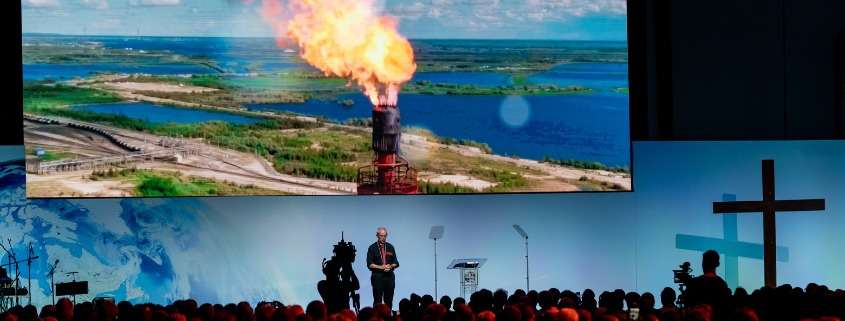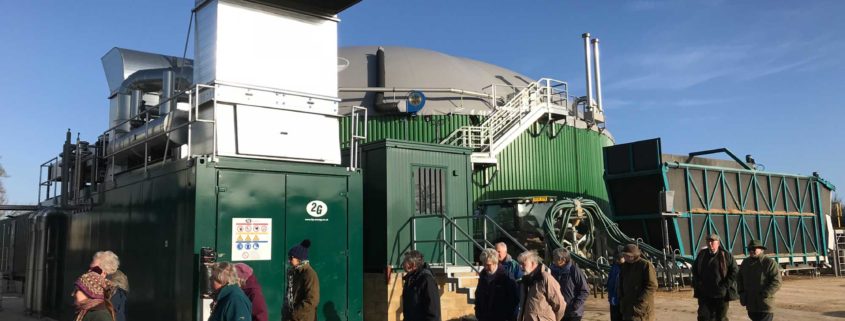Bishop Steven shares an overview of the key thread of Science and Faith at the Lambeth Conference held in Canterbury from 26th July to 7th August.
Posts
A couple of weeks ago I had my first experience of “Plough Wednesday”: an annual opportunity to explore rural life and ministry across the Diocese of Oxford with about 40 others. “Bring wellies and warm clothing” were the instructions.
First stop was the Mapledurham Estate, just north of Reading: an inspiring address from the team whose goal has been for a generation to create and keep jobs on the land and in the local economy. Land which cannot be used for farming has been developed in other ways as a golf course, a centre for paintballing and other outdoor pursuits. The impact has been significant.
We drove via the dairy herd up the hill to encounter the anaerobic digester (my first such meeting). Slurry from the cattle goes in, along with maize grown on the estate. Electricity comes out along with dried residue which is ploughed back into the ground as fertiliser. Back down the hill then to the working water mill using the energy of the Thames to generate clean electricity. An essential part of the shift to renewable energy the world over is the move from a few large power plants to many different smaller sources. I was struck by the number of obstacles the estate has had to overcome in innovation – particularly from the planners and those who want the countryside to remain unchanged.
We travelled from a large estate to a smaller farm. The farmer was the fourth generation of his family to work the land here. He described the key shift he has led from dairy to arable and beef production. The economy is continually changing with more unpredictable change on the way because of Brexit. He and his colleagues are passionate about the core purpose of farming: to produce food. He is eloquent on the fragility of the farming economy and the care with which risks are balanced and decisions are taken. We see some of the ways his farm has diversified through solar energy, letting sheds and offering storage solutions.
Even a hardy Yorkshireman was feeling cold by this stage. Lunch was at Bix Manor – very good local soup and Oxfordshire cheeses, paving the way for the afternoon session. Then onto the Nettlebed estates. We heard a little bit about bovine tuberculosis and cattle at Shiplake but at Nettlebed there was a chance to hear more about the devastating effects of a positive TB indication on a dairy herd. Again, we were moved at the resilience needed by the farming community as well as the isolation and loneliness experienced by many farmers. One of the excellent agencies involved in the day is the Farming Community Network which offers much needed pastoral and practical support.
The other story at Nettlebed was of pioneering cheesemaking. The estate has begun a new dairy to make local cheeses to great acclaim already. There are two varieties so far: Bix and St Bartholomew (named for the local church). A third is in development. I learned that there is as much care needed in making a good local cheese as a good local wine. The business is making headway but again needed to overcome significant hurdles. The farm has installed a scrap wood burning heating system which also heats St. Bartholomew’s Church: another example of energy conservation and good ecology going hand in hand with good business.
A short service of Evening Prayer in the Church drew the day to a close. I gained new insights into the work of farmers and those involved in the rural community in this part of Oxfordshire and Berkshire. I came away with the deeper appreciation for our Rural Officer, Glyn Evans and our rural ministry team. I was given a fresh understanding of the courage, skill, wisdom and determination needed to farm and to manage estates in an uncertain climate. I give thanks to God for the ingenuity, care for creation and determination we witnessed and all those we met.


